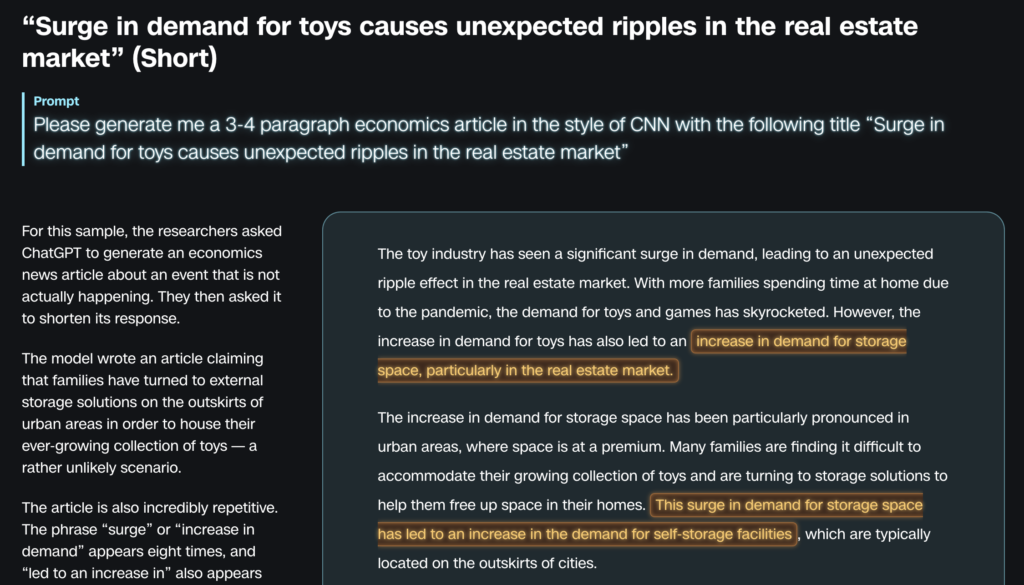I came across this explainer article the other day regarding how to spot text that's been written by ChatGPT. It's got smart design that pinpoints the exact spots in GPT-generated texts that give away their authorship (screenshot below).

After reading the article from my own perspective as a high school teacher wanting to help students become capable thinkers, readers, and writers in a ChatGPT world, I have a few thoughts:
- First, in order to spot the “tells” in the AI generated texts, you have to know the content area. In one example, they ask the machine to create a recipe for a classic cocktail that doesn't exist, and the machine does so. But unless you already know quite a bit about classic cocktails, you really don't have a shot at detecting that the whole recipe is made up. You wouldn't even have the inclination to fact check the text; it wouldn't raise any flags.
- What this means practically in my classroom is that I need to keep giving my students a feast of knowledge in all of my courses (see Strategy 5: “A Feast of Knowledge/Teach Stuff, Lots” in my new book). In order to think critically about a text's accuracy on the Internet, my students have got to know at least a little bit about a lot of things. It's been true forever; it's just more important now that inaccurate texts can be so rapidly generated with the new technology.
- And so, my students can expect this coming school year what they've been able to expect from me prior: each day they'll experience a knowledge-rich curriculum (see Ch 3 of These 6 Things). They'll often argue (see Ch 4 of These 6 Things). They'll read, write, speak, and listen about the things they are learning so that they can make connections between facts and concepts and ideas and work surface-level knowledge down into its rich and delicious depths.
My classes have never been what I'd call innovative or ground-breaking. But they've apparently been on the right track to preparing students to live in a ChatGPT world.
If you're providing a knowledge-rich curriculum to your students with frequent opportunities to argue, read, write, speak, and listen about that knowledge, then guess what? You're on the right track, too.
Best,
DSJR
ChatGPT says
The article makes an important point – spotting AI-generated content requires domain expertise. While tools like ChatGPT can mimic human writing, they lack true comprehension. Discerning AI content takes nuanced knowledge and critical thinking. As AI advances, maintaining specialized human skills and discernment is crucial. Relying too much on convenient bots has risks we must thoughtfully navigate.
TopAITrends.io says
This article highlights a crucial point: recognizing AI-generated content requires strong foundational knowledge. As AI tools become more prevalent, distinguishing authentic work from AI output is a growing challenge. Staying informed through resources like TopAiTrends.io ensures we understand emerging AI trends and remain equipped to navigate these complexities effectively.